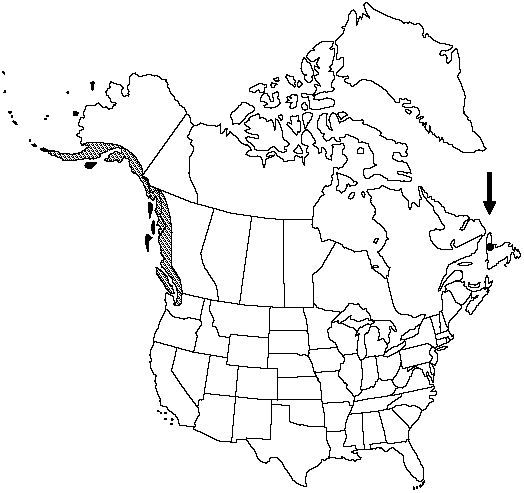Thelypteris quelpaertensis
Bull. Fan Mem. Inst. Biol. 6: 328. 1936.
Stems short-creeping to suberect, 5–10 mm diam. Leaves monomorphic, dying back in winter, crowded, (15–) 25–100 cm. Petiole straw-colored to tan above base, 3–20 cm × 2–5 mm, scales on petioles and rachises tan to straw-colored, persistent, ovate to lanceolate. Blade elliptic, 25–80 cm, 5–10 pairs of proximal pinnae gradually smaller toward base, lowest pinnae ca. 1 cm, blade tapering gradually to pinnatifid apex. Pinnae deeply pinnatifid to ca. 1 mm or less from costa, 3–12 × 1–2 cm; segments linear to oblong, somewhat oblique and often somewhat curved, entire or crenulate, basal segments of proximal pinnae more often crenulate; proximal pair of veins from adjacent segments meeting margin above sinus. Indument abaxially of tan to whitish linear scales along costae, hairs lacking or sparse along costae, blade tissue lacking glands or sparsely glandular. Sori round, submarginal; indusia tan, glabrous; sporangia glabrous. 2n = 68.
Habitat: Terrestrial in open, rocky woods and subalpine meadows in acid soils
Elevation: 30–1300 m
Distribution

B.C., Nfld., Alaska, Wash., e Asia
Discussion
Although the name Thelypteris limbosperma (Allioni) H. P. Fuchs, type from Europe, has usually been applied to plants in the flora, specimens from western North America match more closely those from eastern Asia; therefore, a name based on a Korean type is used here. The single collection from the coast of Newfoundland (reported by A. Bouchard and S. G. Hay 1976) is remarkably disjunct but matches collections from western North America rather than those of the European species.
Selected References
None.
Lower Taxa
No values specified.